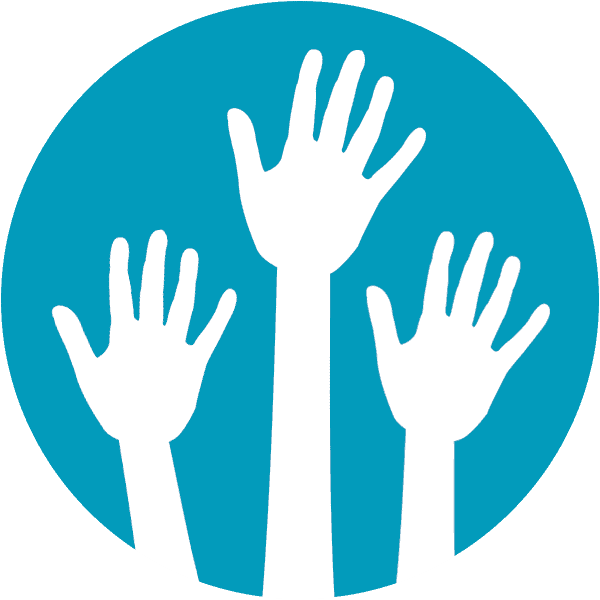Family Healing in Living with Dystonia
By Karen K. Ross, PhD, DMRF Vice President of Support
This article was published in the Dystonia Dialogue.

Our family felt like the rug was pulled out from under us when my son was first diagnosed with dystonia. Each family member was affected in profound ways, and we experienced the entire range of emotions. Shock, denial, and helplessness were just the beginning. Later we felt guilt, resentment, and even anger. At the time, we were told there were no cures and no treatments, and it was hard to even find a doctor that knew about dystonia.
I like to think of a family as a woven tapestry with each person making up a unique color and thread of the whole piece. When a family member is diagnosed with a chronic disorder such as dystonia, it may feel as if the tapestry is unraveling, never to be woven back together in the same pattern. Some families do come unraveled, but others go on to weave a whole new tapestry, brighter and stronger than before.
Dystonia Affects the Entire Family
The stress of dealing with dystonia on a day-to-day basis can change the way each member reacts and relates to one another. Communication may break down. Where once there was openness and honesty, it may now be more difficult to express concerns and feelings. I once spoke to a dystonia support group where a man brought up his feelings of loneliness and sadness because his adult children never asked him how he was doing or referred to his dystonia. In another instance a woman spoke of her feelings of fear and loss and then said, “My husband wants me to be more positive and not so emotional, but I just can’t. I wish he could understand how I feel.”
Most people tend to think that it is only the ‘patient’ whose needs and feelings change but siblings, parents, spouses, grandparents, and friends are also dramatically affected. They too live with the emotions of grief, fear, sadness, loss, resentment, and anger.
Each member of a family has their own reality, their own view of the world, and their own set of feelings. Feelings are not right or wrong. While it is important to verbalize feelings, it is just as important to validate someone else’s feelings. The woman whose husband wants her to be more positive could say, “I realize that you have feelings that are different from mine, but I still need you to listen to what I am feeling.” By stating this to her husband, she is validating what he feels and is helping him to understand that she has a right to her feelings as well.
Empathy is Essential
One of the most healing and meaningful things family members can do for one another is to develop a position of empathy for one another. Empathy is being able to put yourself in someone else’s shoes for a moment. It’s not the same as pity or even compassion but rather it is the core of understanding. Each and every one of us has the desire and the need to be understood. For instance, a child might verbalize empathy to a parent by saying, “Mom, I remember how depressed I was when I broke my foot and couldn’t get around like I used to, so I can understand how it must be hard for you to not do all the things we’re used to doing.”
Or one spouse to another: “It must be difficult for you to deal with all the difficulties at work and then come home to the difficulties here.” These are the kinds of statements that lead to more positive connections.
Communicating Clearly through the Ups and Downs
Over the years, the DMRF has repeatedly heard from dystonia-affected people that the support of family makes it possible for them to handle the ups and downs of living with the disorder. I recall one person stated it this way: “It’s important for family members to understand that there are good days and bad days—and sometimes good hours and bad hours—and that patience and understanding and love are the most important contributions they can make.”
It’s not always easy to verbalize feelings or to have empathy for other family members, but good communication skills and openness can create an environment that is both nurturing and healing for the whole family.
Here are a few communication suggestions:
- It’s helpful to start statements with ‘I’ instead of ‘you.’ For example, “I would like you to help me with a few chores this afternoon.” I need, I want, I feel, I like—these are direct statements that communicate what is going on with you.
- If you are the person who has dystonia, let family members know how they can be of assistance instead of letting them guess.
- It is helpful to have family meetings where members can discuss new situations, responsibilities, and talk about concerns or conflicts.
- Listening is as important as talking. Really listen to what a family member is saying. Give them your full attention and validate what they have said by paraphrasing or saying you understand. For example: “I understand it’s important for you to spend more time with me in the evenings, and I will try to make this possible.”
- The emotional health of children in a family is affected by the emotional relationship between their parents. Parents need to communicate and work on their relationship. It is important to seek professional counseling if you feel like you need help with your relationship.
The persistent intrusion of an illness or disorder affects all aspects of family life. Empathy, good communication skills, an attitude of acceptance, and flexibility will help to foster a resilient family. The challenges of adversity can nurture growth and compassion in each of us if we let it.
Karen K. Ross, PhD is chair of the DMRF Support Committee, author of Holding the Hope: A Parent’s Guide to Living with Dystonia, and creator of meditation programs for dystonia-affected individuals and caregivers. She is a clinical psychologist and marriage and family therapist retired from private practice in Los Angeles.
The Dystonia Medical Research Foundation is a 501(c)(3) non-profit organization dedicated to advancing research for improved dystonia treatments and ultimately a cure, promoting awareness, and supporting the well-being of affected individuals and families.



